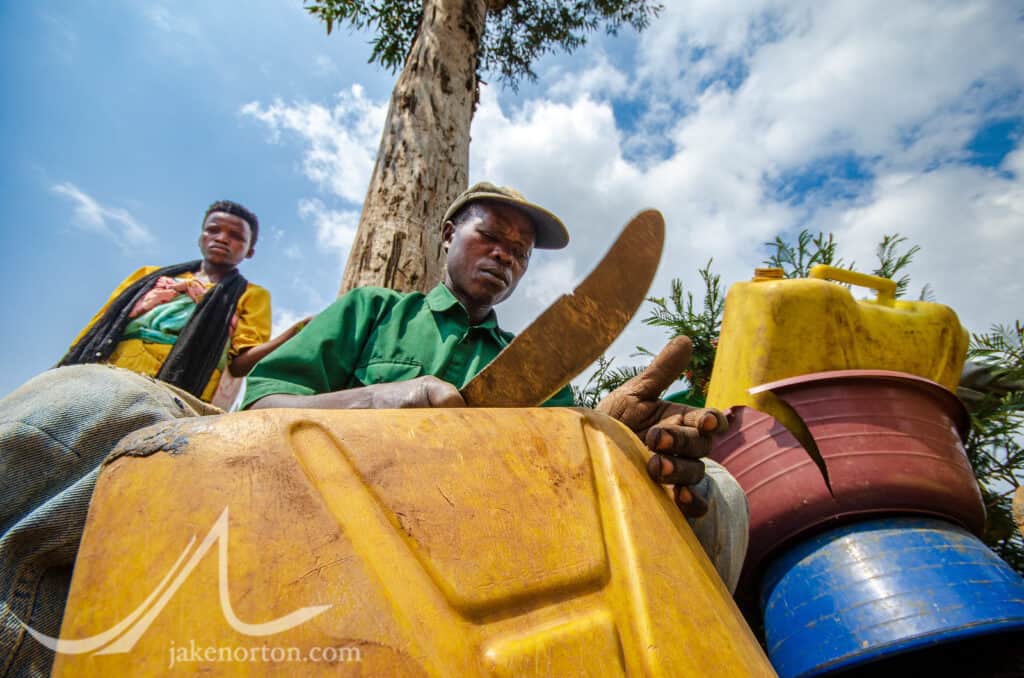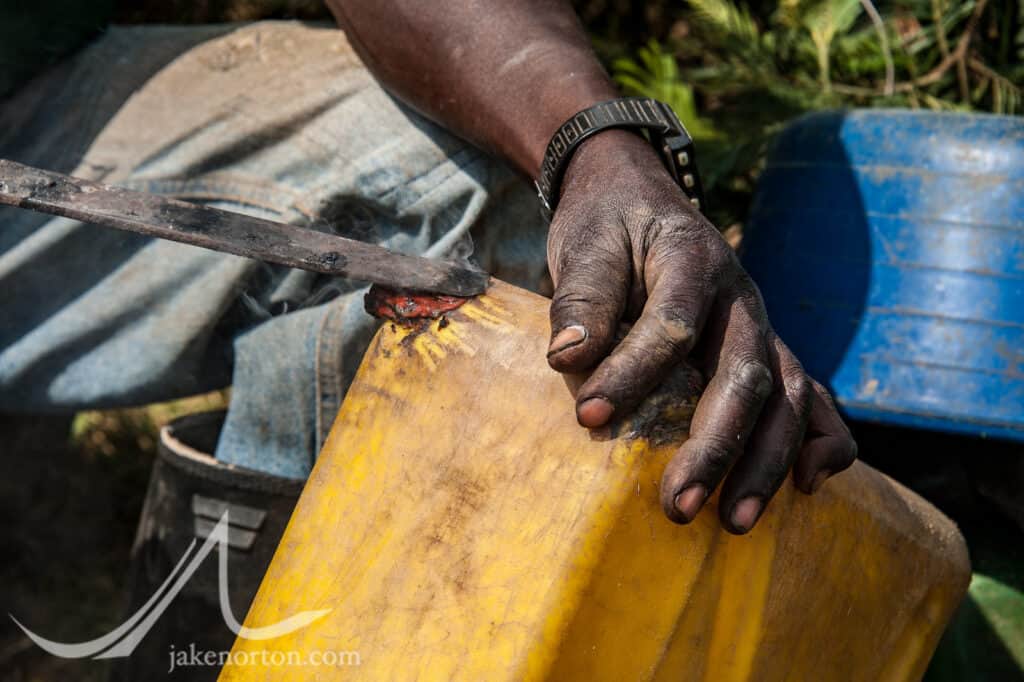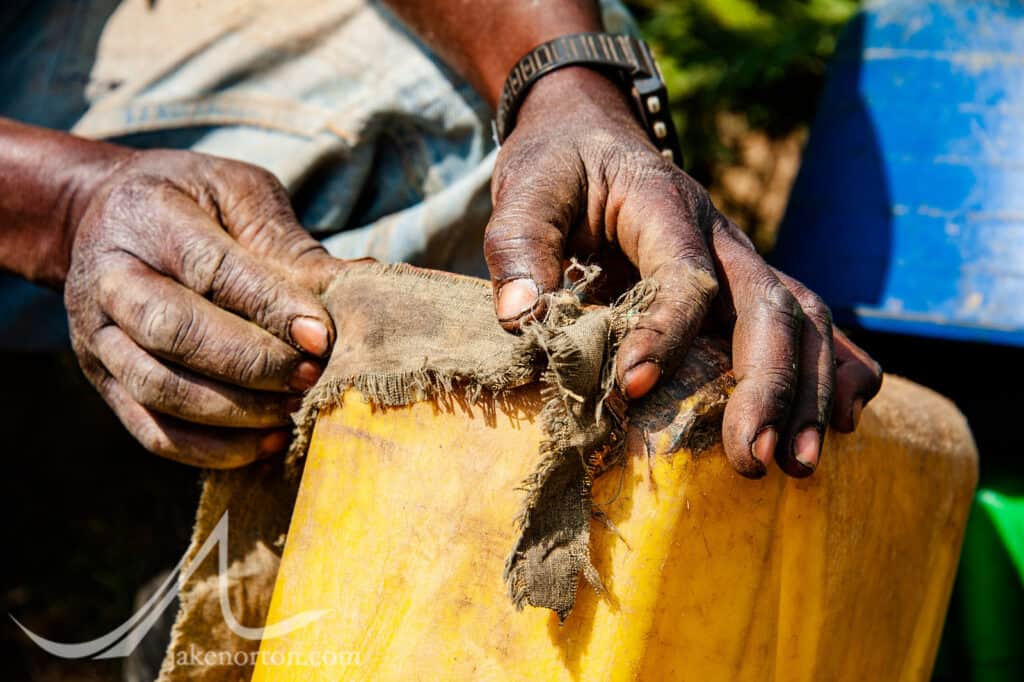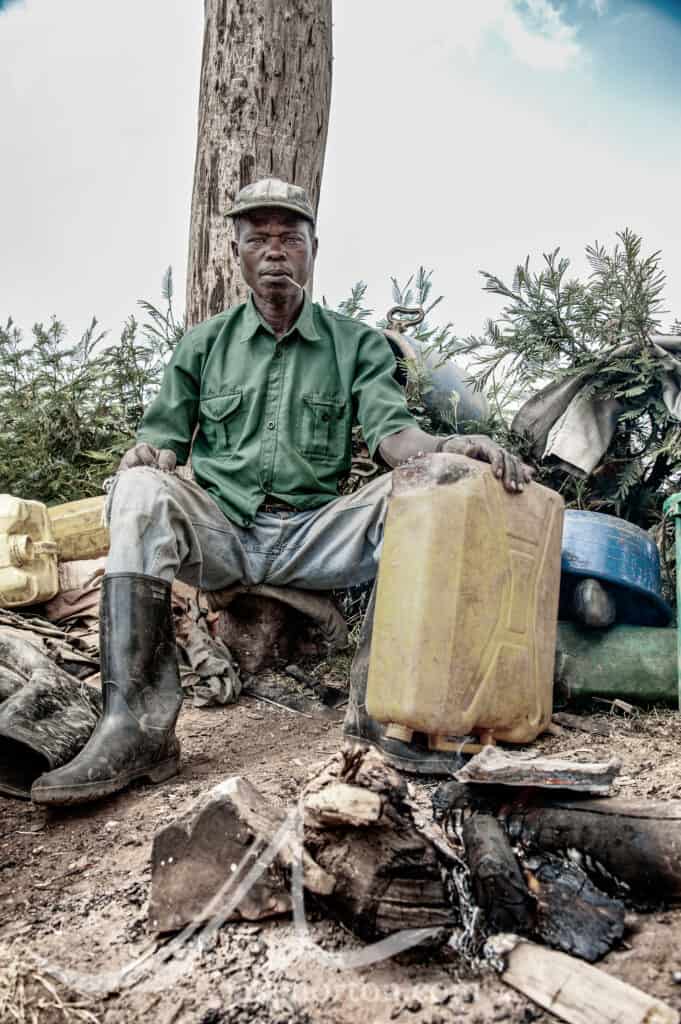Note: The post below is one of an occasional, ongoing series I'm sharing of moments, places, images and words that are real stories, real images, real people and places and experiences. I started this in reaction to the proliferation of AI-generated content that while impressive is, in the end, devoid of story, of emotion and experience that form the basis of creative work. To read my thoughts on generative AI, see the first post in this series here.
We could smell his work before we could see it. An acrid aroma, not necessarily bad, but definitely not pleasant, a sharp scent that pierced the air and clung to the nostrils.

It got stronger as we rumbled along the red dirt roads of rural Rwanda, passing villagers with jerry cans - jerry cans on heads, on bikes, on backs - all seemingly headed in the same direction.
Cresting a small hill, we saw the destination, and the source of the smell. Sitting comfortably in the shade of a tree, a man sat, surrounded by villagers and jerry cans, a small fire at his feet and the acrid smell - stronger now - wafting all around.

My friend and guide, Christian Muhawenimana, and I hopped out of our vehicle and over to see what was going on. We soon learned the man under the tree, Kabanda Epimaque, was a repairman of a vital sort: he fixed jerry cans.

Here in Rulindo District, water is rarely accessible close to people’s homes. Generally, there is a communal tap, maybe several, in a village, and to get water - for drinking, for washing, for cooking and cleaning and everything - villagers must walk and carry it home. Sometimes it’s a short walk, sometimes it’s miles; sometimes it’s men doing the carrying, but more often it’s women and children. And, always the water is carried in a jerry can.
But, jerry cans take a beating, and inevitably spring leaks. Enter Kabanda.
Sitting under his shade tree, piles of battered jerry cans around him, he worked non-stop. First, a can would be presented to him, its known defects pointed out, and him often noting additional ones ripe for repair. Price haggling came next, the ritualistic back-and-forth endemic to any marketplace. Once cost was settled, Kabanda set to work.
Using a large panga (machete), he’d delicately cut out damaged, bent, broken bits of plastic and remnants of prior repairs. Next, a chunk of orange stock plastic was placed into the fire at his feet, softening and smoking and releasing the acrid stink. As it warmed, Kabanda would further prep the repair, roughing the existent plastic with a file for solid adherence. Using a giant, blunt knife, he’d next smear the molten repair plastic across the damaged area, filling and smoothing, adding more as needed, before finally using a think burlap to press it smoothly and firmly into place while cooling.



Finished, the good-as-new jerry can was handed back to its owner, money exchanged, and in seconds Kabanda was onto the next repair, a satisfied villager off to fill their jug and head home.
Christian and I sat for a spell, watching the flurry of activity, speaking with locals, laughing and sharing and learning with new friends under the baking Rwandan sun before eventually taking our leave and heading onward to Burega Village.




Beautifully written snap shot of a beautiful country. Thanks for sharing this, Jake!
Thank you, Sarah - much appreciated! I hope to get back again one day; like you said, an amazing and beautiful country!
Great story, Jake. I miss Rwanda! Much love to you, Wende, and the family.
Thanks Elisa, and same - I'd love to get back there, and Uganda as well, someday! Hope you and Jon are well, and would be great to see you again one of these days!